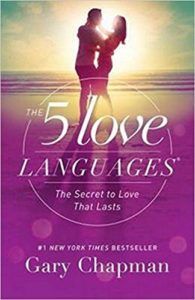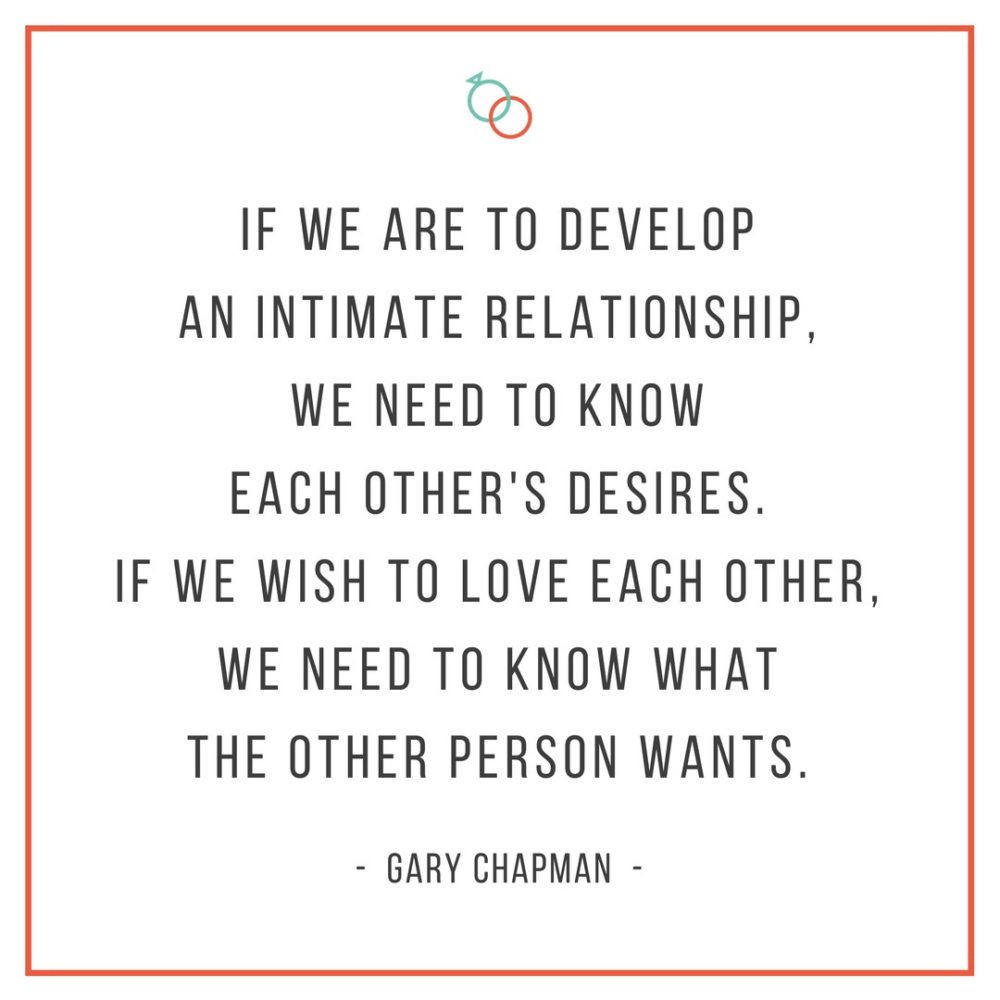Love Languages Part 2: Speaking
By Amy Miller
*You will get the most out of this post if you read Love Languages Part 1: Understanding*
We’re talking about this best-selling book, “The Five Love Languages” by Gary Chapman! (affiliate link)

So hopefully you have taken the assessments to know what your spouse’s love languages are, as well as your own. And hopefully you have discussed it with your spouse as well. (If you haven’t taken it yet, no worries, still important to know all this!). I suggested that when you discuss your love language outcomes from the assessment, it’s important to point out specific questions that described your love languages perfectly. For example, if your primary love language is Receiving Gifts and you feel so happy and loved when your partner brings you home a gift after a business trip, then tell them question #23 described your preferences best. Or maybe Acts of Service is your love language and so question #20 answer D was exactly what you need when you are feeling stressed. When your partner knows something so specific that makes you feel loved, they can make a mental note to do that thing often for you. This is what it means to accurately speak your partner’s love language!
STORY TIME:
I mentioned in the previous post, that if we assume we know how our partner likes to be shown love, it’s possible we might not do something they actually need right then. For example, I know Trevor’s primary love languages is Touch, so I know he likes when I give him a massage occassionally. But I have come to learn that it can sometimes seem like a task when he is very tired from working all day, and has other things he needs to do. When he told me he prefers it on the weekend when he isn’t tired, I then knew when he would best enjoy it, and also knew when I could surprise him sometime! This story helps demonstrate that not only do we need to know how to speak our partner’s love language, but we also need to know the dialect to speak in!
Different Dialects and how to discover them
You may understand and speak your spouse’s love language, but it’s got their own expectations and interpretations to it! For example: Say a wife’s primary love language is Gifts because she likes receiving a gift as a way of feeling cared about. Well sometimes a gift comes in all shapes and sizes! Gifts can be homemade, purchased, expensive, inexpensive. They can also be in pretty shiny boxes, or not wrapped at all. All of these aspects of gifts are what I consider to be dialects. Maybe the wife feels guilty and frustrated when given a gift that is expensive. Maybe the wife would rather have a thoughtful handmade card as a gift. These are GOOD specifics to know, and guess what? Your partner can totally tell you what they prefer, if you aren’t sure! :)
Understanding, and accurately speaking a love language helps avoid resentment
Gary Chapman’s book gave a great example of a couple who found themselves in a deep rut. They both had the same love language of Acts of Service, but they each had different dialects (which they didn’t realize). They both served each other in ways they would want to be served, thinking the other would appreciate it. But because they had different preferences on the kinds of service rendered, their emotional needs weren’t being met. This lead to a sad cycle of resentment because they both were feeling unappreciated as if their efforts weren’t good enough. I could totally see how that would happen, can’t you? The unfortunate thing is when couples let that resentment build and build over the years they stop trying, and they either continue in unhappiness or they end their marriage.
How do we avoid getting into a dangerous cycle like this?? We take the time NOW to know how our partner actually wants to be loved! With the couple above, Gary Chapman suggested that they straight up tell each other their expectations of how they want their spouse to love them. This seems like it would take the thoughtful element of surprise or initiative out of it, but sometimes it’s necessary. He had them write down a small list of little things the other could do for them, and even how often they would prefer those things done. One of the wife’s requests was if her husband could change a diaper once a day, to give her a small break. One of the husband’s requests was packing a lunch for him on Saturdays when he goes fishing. These were little things but the act would go a long way towards repairing their relationship, especially if done consistently. It’s not required to give your spouse requests, but knowing these can almost guarantee they are successful in speaking your love language!

“Requests give direction to love, but demands stop the flow of love.”
Gary Chapman
I love this quote from him, because it helps us remember that we do need direction sometimes, and that it’s OK to ask our spouse what they want. Because that is better than feeling the hurt from not having your emotional needs met, and you end up yelling what you want to your spouse! I don’t know about you but when someone yells at me to do something, I either do it without genuine willingness or I don’t do it at all! So I love his advice about that.
It’s important to remember with love languages, is that it requires selflessness sometimes. There are moments where I want to express love to Trevor by running all these errands for him and our family. Since he dislikes running errands and I love running errands, he does appreciate this a lot! However, there are some days where that’s not what he wants or needs. Sometimes he just wants me to stop with my busy list and just play a game with him on the ipad, or watch a show together. It may not always be what I had in mind but if that’s what he needs, then I need to be willing to do that. In the beginning, it feels like an ongoing matchup between what we would like to do for our partner and what they actually want, haha. However, I do know that it gets easier to serve them in their way when you see how much it truly means to them :)
I hope this explanation of love languages along with my interpretation, were helpful to your marriage in some way. It takes time to get used to it and to see progress happen but I’m sure you will see it! Feel free to share with us how you have used love languages to overcome hurdles in your marriage, or how it helps you understand each other better :)

